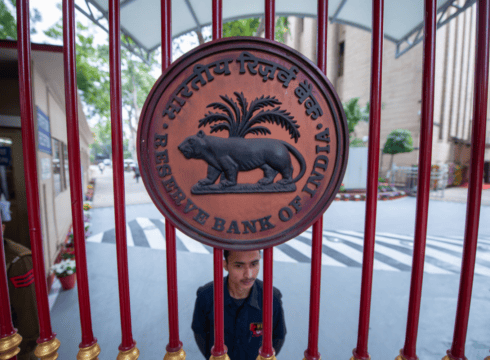The RBI has asked the SROs to frame a code of conduct for its members and set effective regulatory standards for the industry
The regulator expects fintech SROs to regularly update it on the developments in the sector, check with it while updating the taxonomy for fintechs, and carry out tasks assigned to them by the RBI
Earlier this year, the RBI had issued draft norms for fintech SROs and sought feedback from stakeholder
Inc42 Daily Brief
Stay Ahead With Daily News & Analysis on India’s Tech & Startup Economy
The Reserve Bank of India has notified guidelines for recognising self-regulatory organisations (SROs) for the fintech sector, mandating them to set up a grievance redressal mechanism for members and a non-discriminatory fee structure among others.
It’s pertinent to note that the RBI had issued draft norms for fintech SROs in January and sought feedback from stakeholders.
Now, it has issued the final framework, prescribing the broad functions, eligibility criteria, and characteristics for SROs in the fintech sector.
Objectives of Fintech SROs
A fintech SRO should be development-oriented, true representative, free from influence of its members, and a legitimate arbiter of disputes, the RBI said.
They have also been told to promote ethical conduct among members to ensure better compliance with regulatory requirements. This would involve facilitating communication between industry players and the RBI.
The regulator has also asked fintech SROs to foster a culture of research and development within the sector by conducting studies, organising surveys, preparing research reports, and facilitating discussions with think tanks.
The dispute resolution framework should be efficient, fair, transparent and in compliance with the statutory and regulatory requirements, the central bank said. It also told fintech SROs to conduct periodic assessment of customer service standards.
Further, the banking regulator asked SROs for the fintech space to frame a code of conduct for its members, advertisements and market standards.
They have also been asked to establish effective regulatory standards for the fintech sector and set up an accreditation mechanism, which would require prior approval from the RBI.
Eligibility and Membership Criteria
The central bank said that only not-for-profit organisations will be eligible for recognition as a fintech SRO. Further, no entity should hold more than 10% or more of its paid-up share capital.
The applicant should have a minimum net worth of INR 2 Cr within a year of receiving the tag of a fintech SRO from the RBI, or the commencement of such operations.
The fintech SROs are required to have an Indian domicile, its members can be domiciled outside the country.
Further, fintech SROs are prohibited from setting offices abroad without approval of the RBI.
The RBI can revoke the recognition granted to fintech SROs if their functioning is found to be detrimental to the public.
Responsibilities Towards RBI
In general, the regulator expects fintech SROs to regularly update it on the developments in the sector, check with it while updating the taxonomy for fintechs, carry out tasks assigned to them by the RBI and submit annual reports.
The RBI can exercise its right to inspect the books of fintech SROs or hire an audit firm to do it.
Commenting on the framework, Payments Council Of India (PCI) chairman and Infibeam Avenues joint managing director Vishwas Patel said, “PCI shall apply for the SRO… as we strongly believe that by pivoting towards a culture of self-governance, all our members will proactively set and adhere to industry standards and best practices. This approach could empower all of us to demonstrate our commitment to responsible conduct and innovation even in cases where there is an absence of formal regulation.”
Regulatory Tightening In Fintech Space
The detailed guidelines come at a time when the RBI has increased its regulatory oversight of the fintech ecosystem and come down hard on the players for regulatory lapses.
A case in point is Paytm Payments Bank, which was directed by the RBI to cease its operations due to KYC-related lapses.
In February, the regulator asked global payment giants Visa and Mastercard to suspend all card-based business payments made via payment intermediaries to entities that do not accept card payments with immediate effect.
In 2022, the RBI barred non-bank prepaid payment instruments (PPI) issuers from loading PPI with credit lines. Last year, the central bank also ordered PPI issuers to not use ‘UPI in a cobranding arrangement’.
Despite this, the country’s fintech market continues to grow at a rapid pace. As per Inc42’s analysis, the Indian fintech industry is expected to grow at a CAGR of 18% to reach $2.1 Tn by 2030.
{{#name}}{{name}}{{/name}}{{^name}}-{{/name}}
{{#description}}{{description}}...{{/description}}{{^description}}-{{/description}}
Note: We at Inc42 take our ethics very seriously. More information about it can be found here.


